OPEN DOOR CONVERSATION WITH FELIPE HOYOS GONZALES
interview/photo by Audrey Wang
“We wake up at 6:45 every morning. I like to read during breakfast at 7am. My boyfriend and I share the breakfast without talking. He reads the news and I read my book. I start working at 8am. I sit with a piece of paper, then I attempt to translate the sound. I don’t see things until I write it down. Composing is 20% imagination and 80% work and sweat of making it. So I sit, play, listen, and I research. It’s filled with different kinds of moments together.”
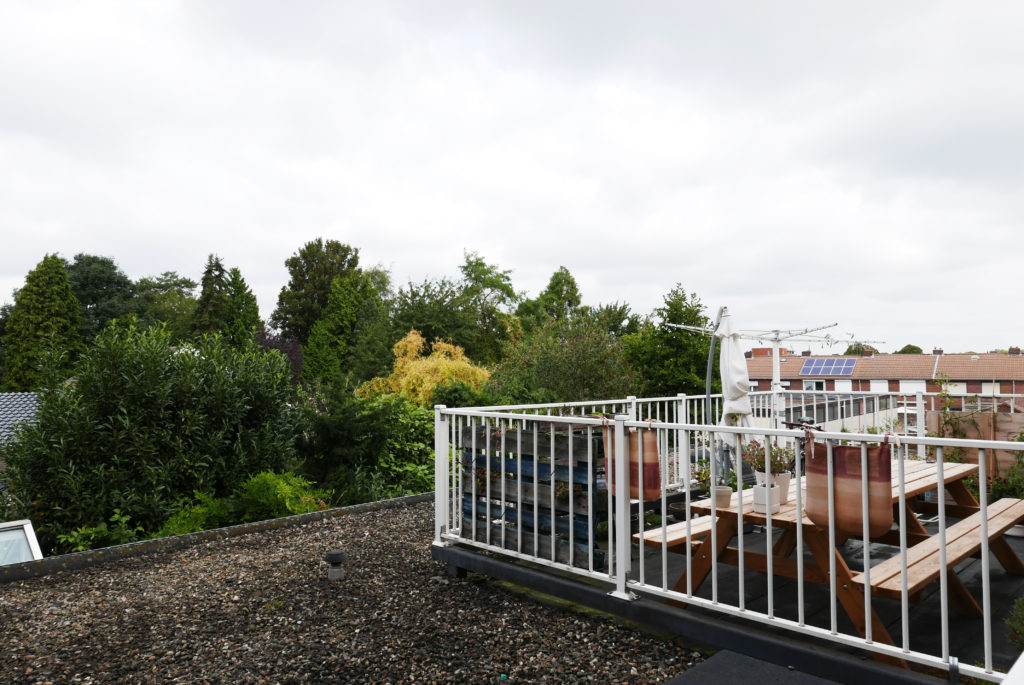
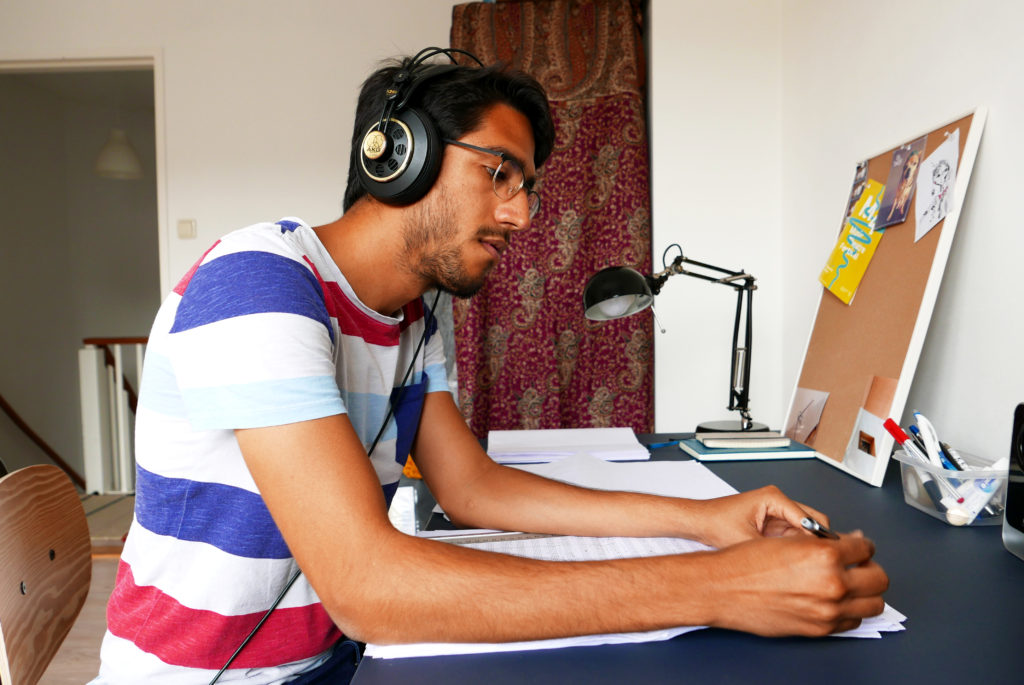
“I was born in the Caribbeans, but I moved to Bogota when I was 17. It was a crazy adventure because there are 10 million people living in Bogota, and I moved there young. I say this because these experiences really shaped me into who I am. I love playing video games, reading books, and exploring cities. I like walking in nature, in forests or mountains, and I love music. I started as a pianist since I was seven, both violin and piano at first. This happened through my father because he always wanted to be a musician. My father is an artist inside. He loved craftsmenship, architecture, working with his hands. He asked my brother and I once if we wanted to do music classes, and that’s where it started.”
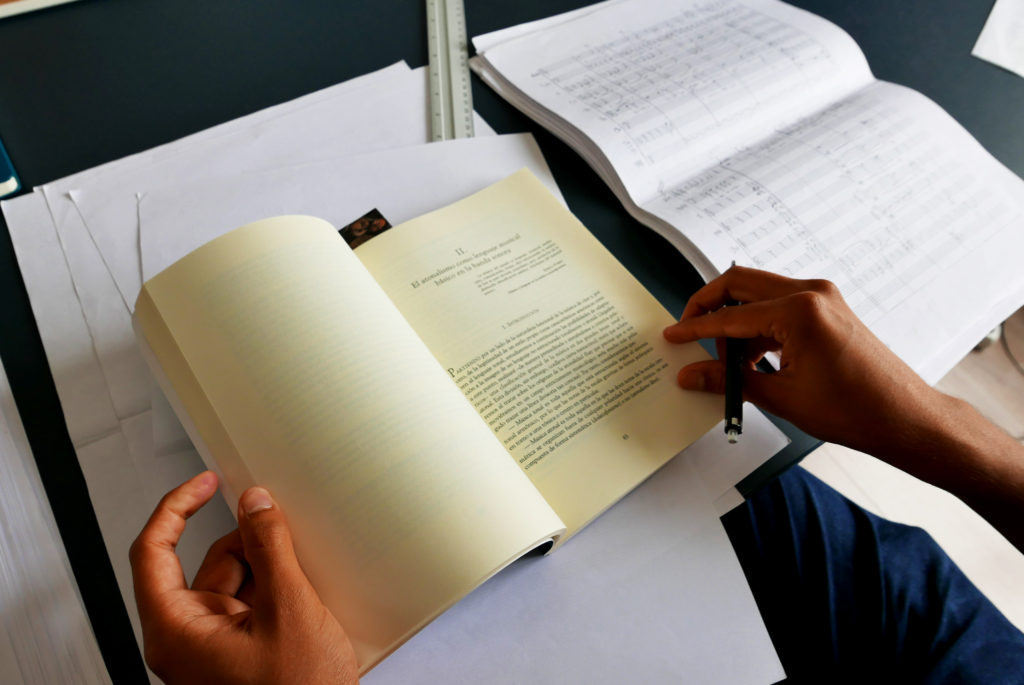
“I always considered myself a methodic person. Studying music was very meditative to me, almost like a mantra. I can study passages over and over again. I started teaching children when I was 15, then I realized I really like doing music, doing it with people, teaching, imagining music, and that was when my first unofficial composition happened.
I started rearranging music according to my taste while practicing classical pieces, arranging it to what I thought was my style at that time. I started composing on the piano things that I thought were “new”. I always feel delicate with the word “new”, because now that I’m experienced I know this is a very delicate word. But at that time I wanted to make something new, and it was very exciting.”
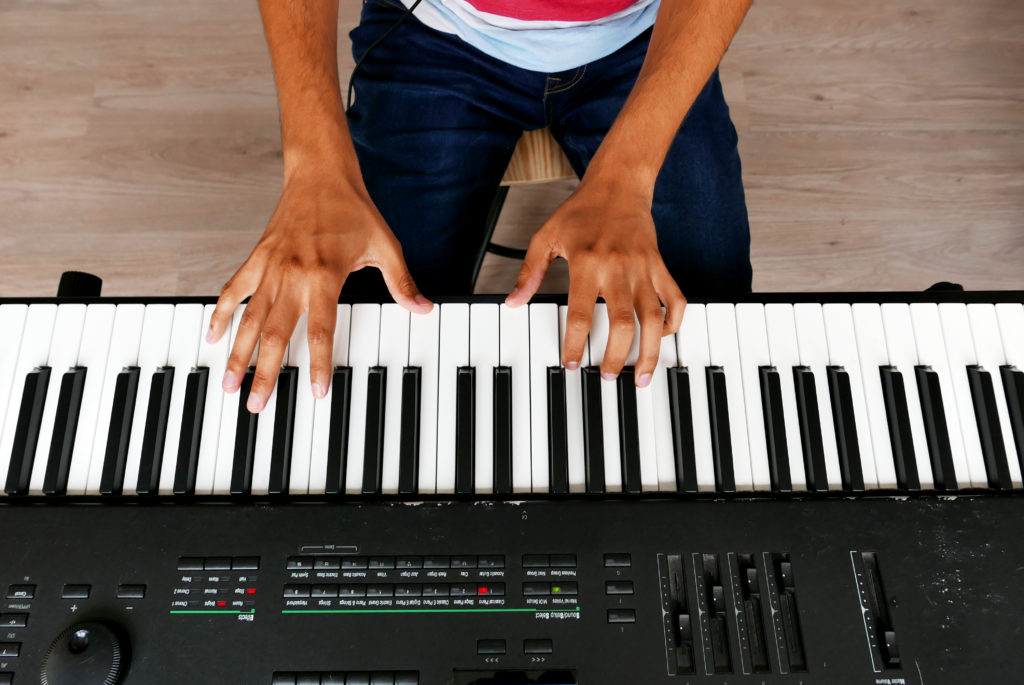
“My best friends in school were all singers. Through them, I realized that I was very enchanted by words, thats why I like reading so much. I started going to their singing classes and realized how powerful singing was. I was also always a very happy choir singer, even till now. I don’t consider myself a singer, but a choir singer because I like to sing with people.”
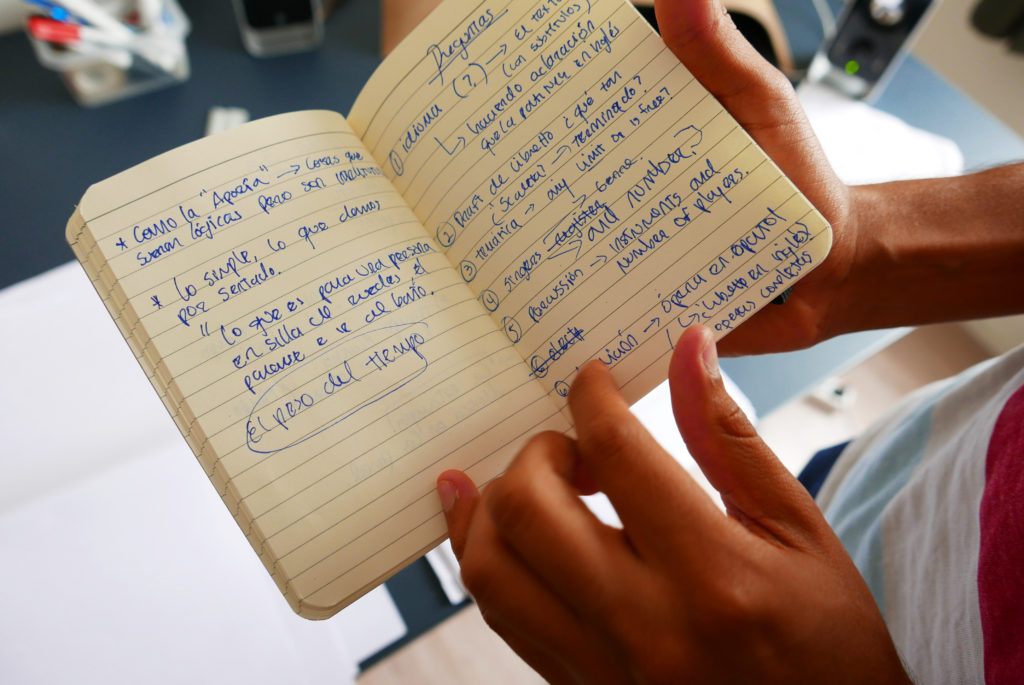
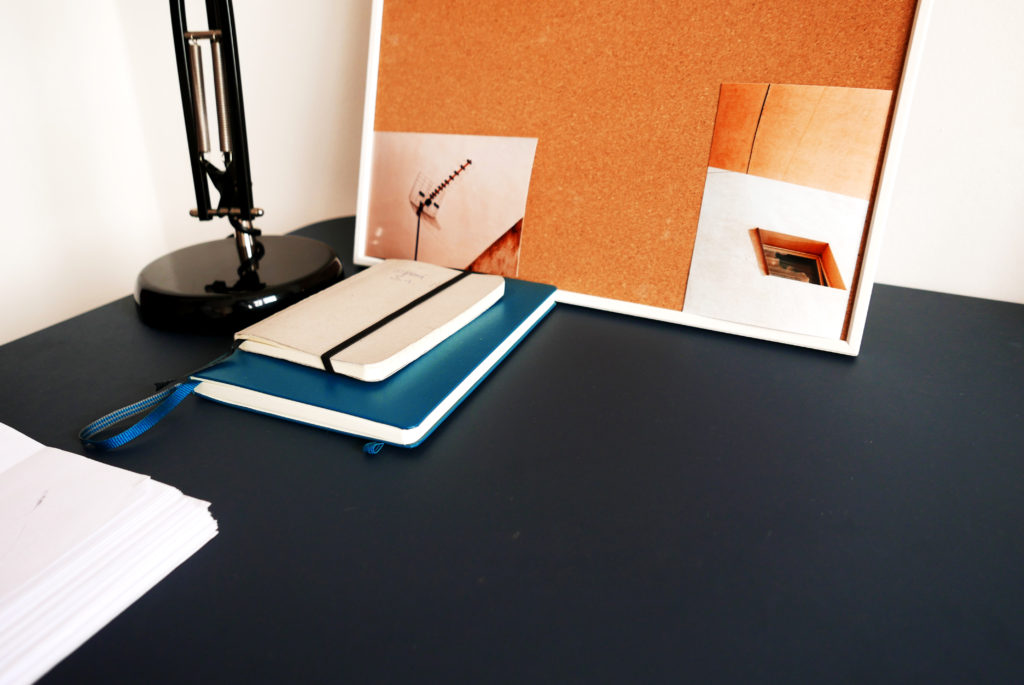
“Composing in general always depends on the performer you’re composing for: technical, artistic and sensitive relationships to the performer is what makes the music alive. Since I started composing for my close friends, I could imagine exactly how she sounded and so it was very easy. I knew when she needed to breathe, how she sounded in high voice registers. That’s not the only way of course. Sometimes there’s a sound in my head without any performers, but then I look for things that give shape to this sound. When you work with commissions you need to also know the sound of this person.
For example, saxophones make very long sounds that needs breathing to create, as opposed to a violin that needs to bow and create friction. They have very different mechanisms, that is why we can’t play all the instruments, but we know how they work and how they produce sound. Same as the human voice, we need to understand how people sing and what’s happening in the body.”
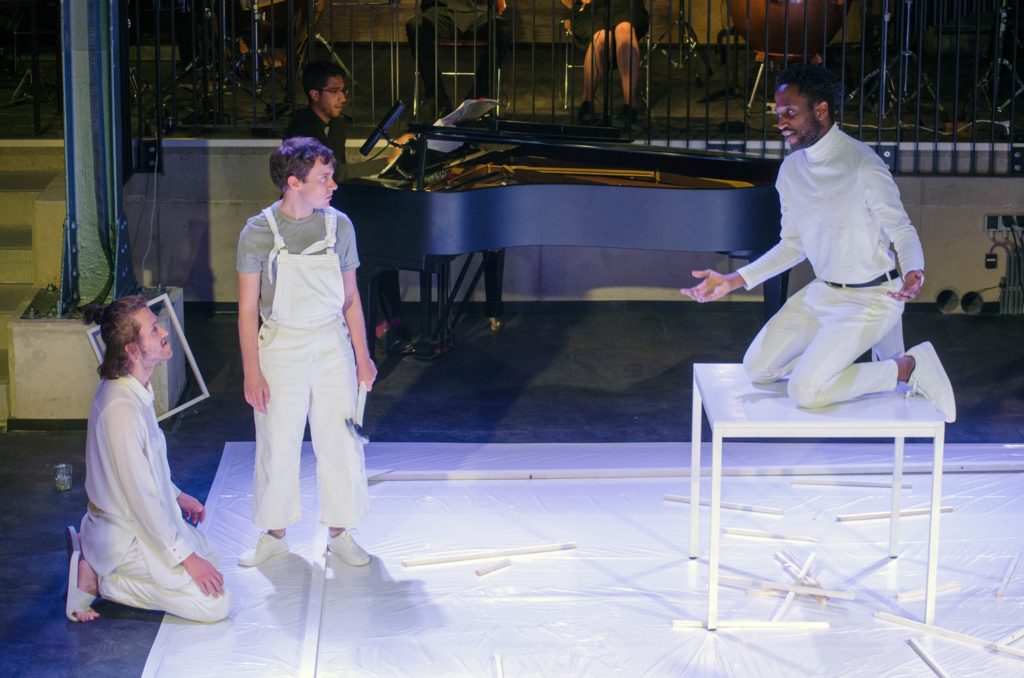
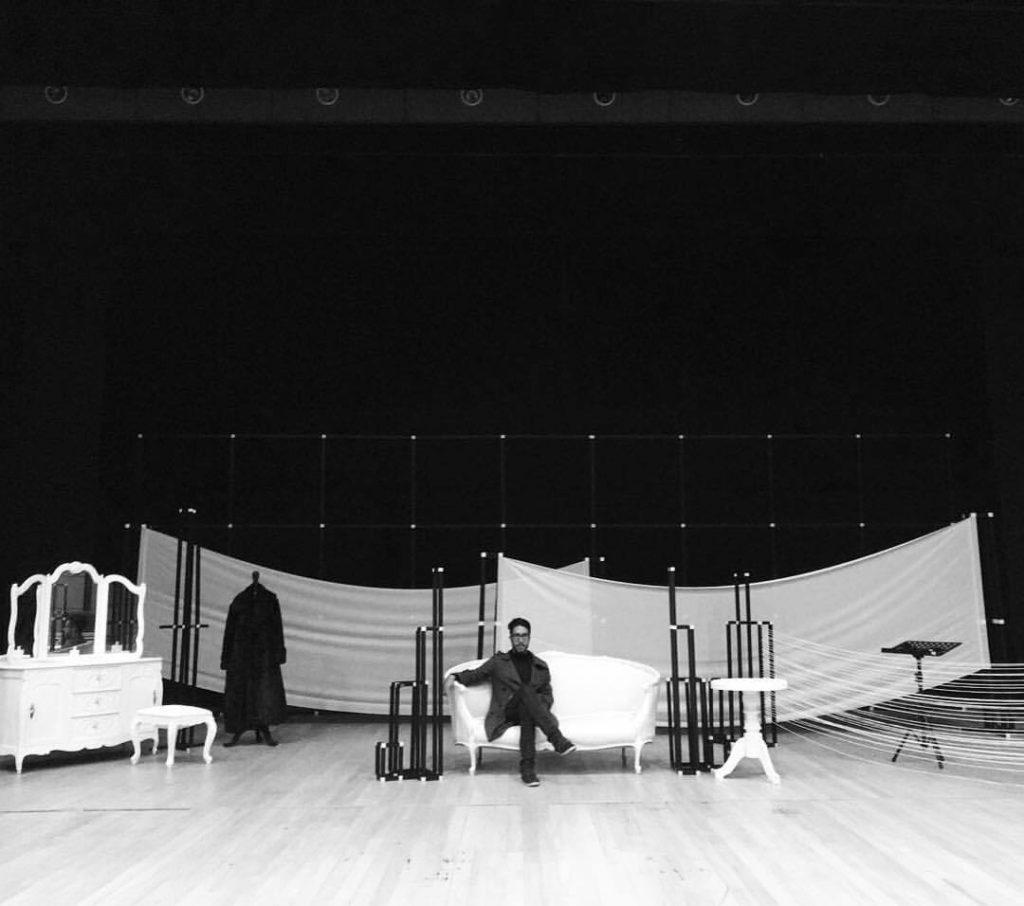
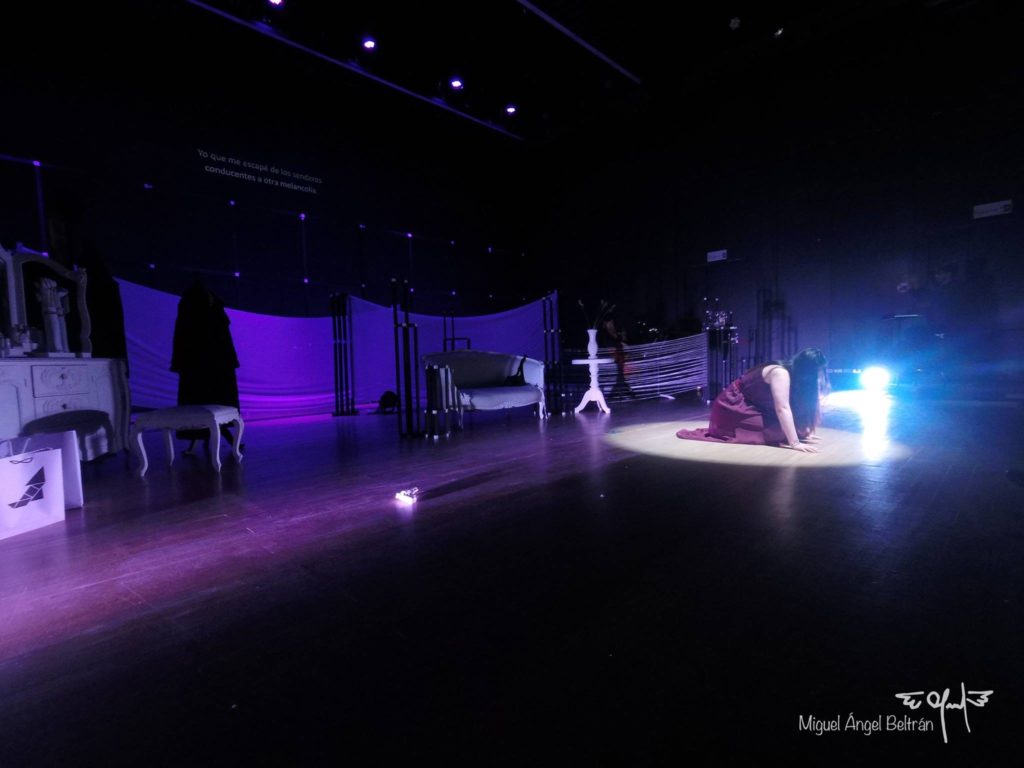
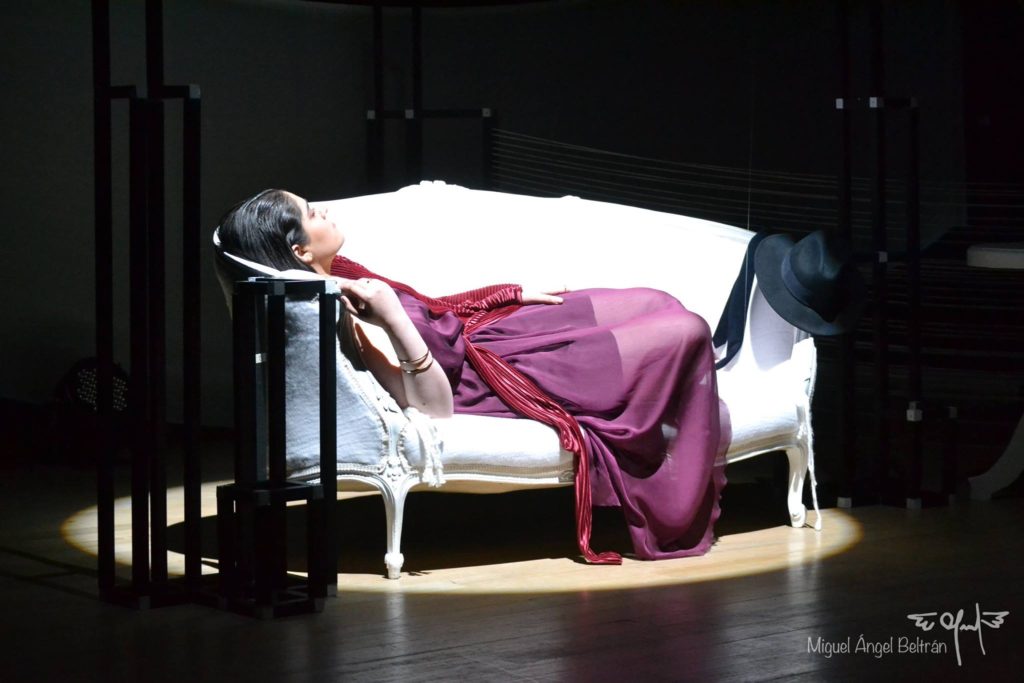
“For me, singing is a composition of music and writing, which are two wonderful and powerful arts combined. I met Galo, a writer from Venezuela; I wanted to compose music, and he wanted to write in a format that it would be presented to an audience. We composed an opera for solo voice, which is very challenging because historically opera usually involved interaction between characters. Opera literally means a piece of work; if you analyze it, operas existed before the movies, and for me it’s the perfect expression of an accumulation or intersection of arts. It’s not only the music, and thats why I feel so passionate about it. It’s an expression of my music but part of something bigger. And I think that is so beautiful, so beautiful.”
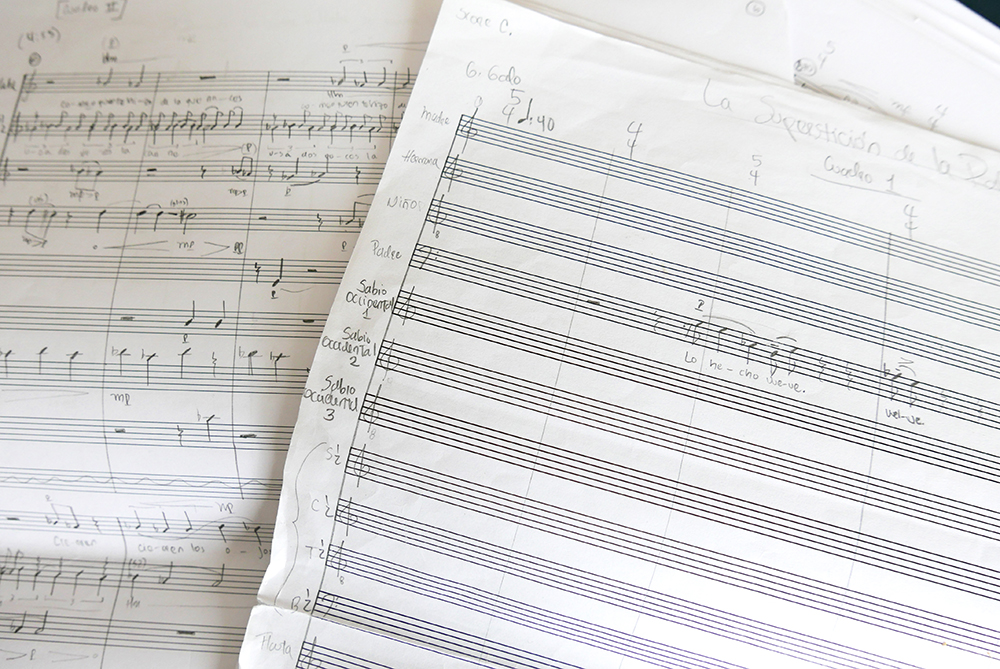
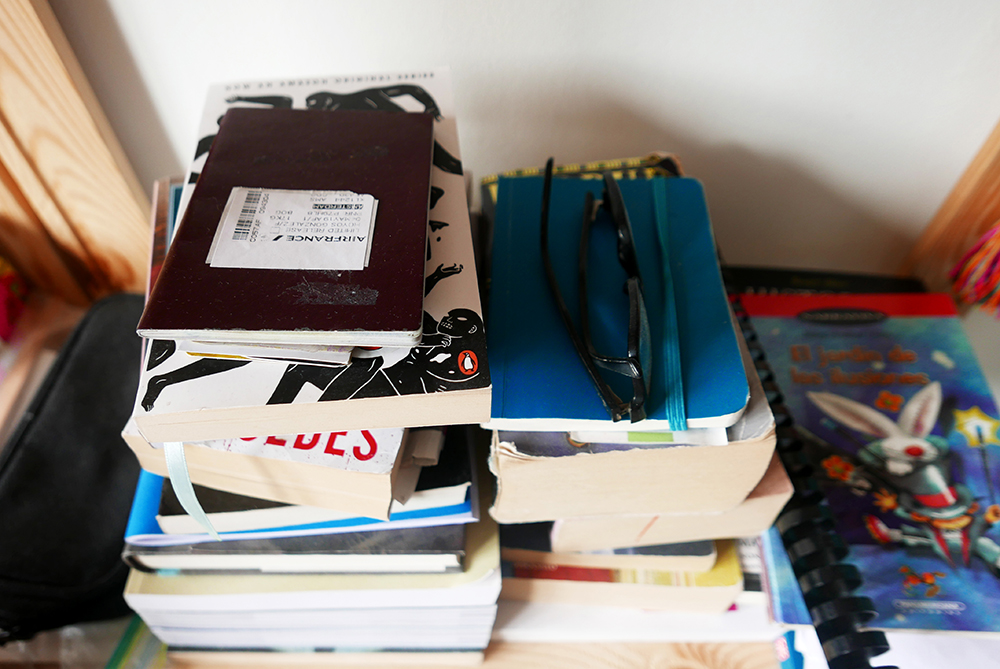
“We made the first opera Melpomene, which is the Greek word for muse of the tragedy. It was the first production for the three of us to create a new opera in Spanish with one actor, consisting of only piano, cello, and mezzo soprano. It was a one year project, and we had to find costume designers, a theater – we needed money, and so many things to make it happen. That’s how we created it, with a collective of artists that we called La Nueva Escena. We called it this name because it has very clear foundations in the name and our mission, to create, promote, and make operas in Spanish. That is our mission because in Colombia, there has been productions in Spanish happening, but operas are not our invention.”
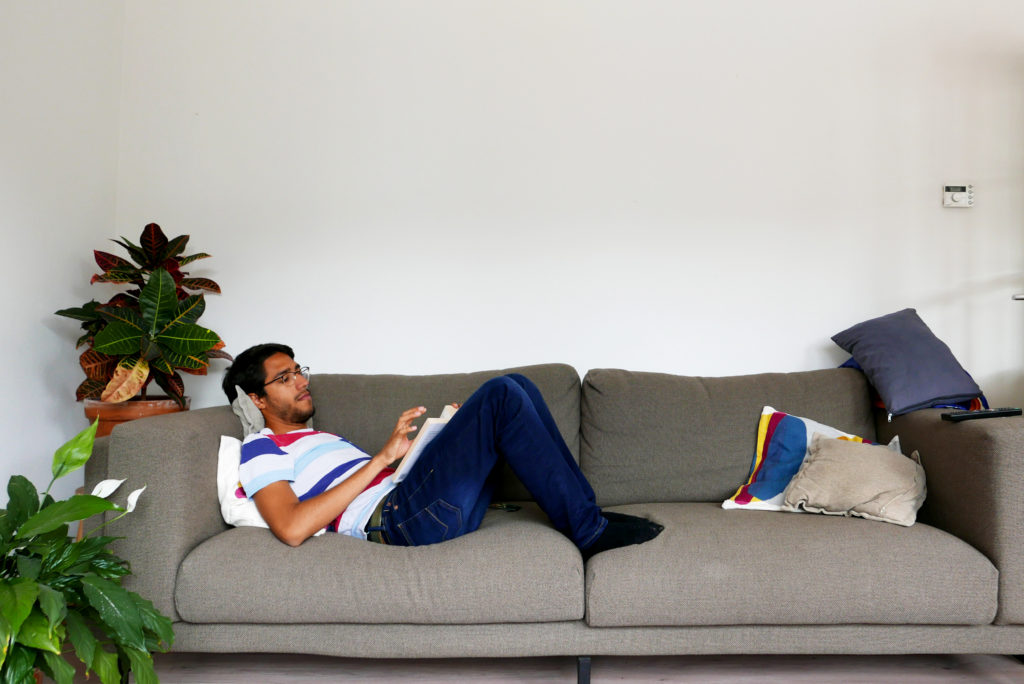
“I like several kinds of books. I like horror, some philosophy, a bit of science, also comic books. Currently I’m reading “It” by Stephen King. I love Stephen King because he expresses horror in a very human way. It’s not about the scream or the thing that will kill you but about what humans feel about it.
Marquez I really recommend, and Kundera.
“Fires” by Marguerite Yourcenar.
“The Noise of Time” by Julian Barnes, it’s about Shostakovich and about his fear of Communist influence on his art.
“The Rest is Noise” by Alex Ross about music from the last century.”
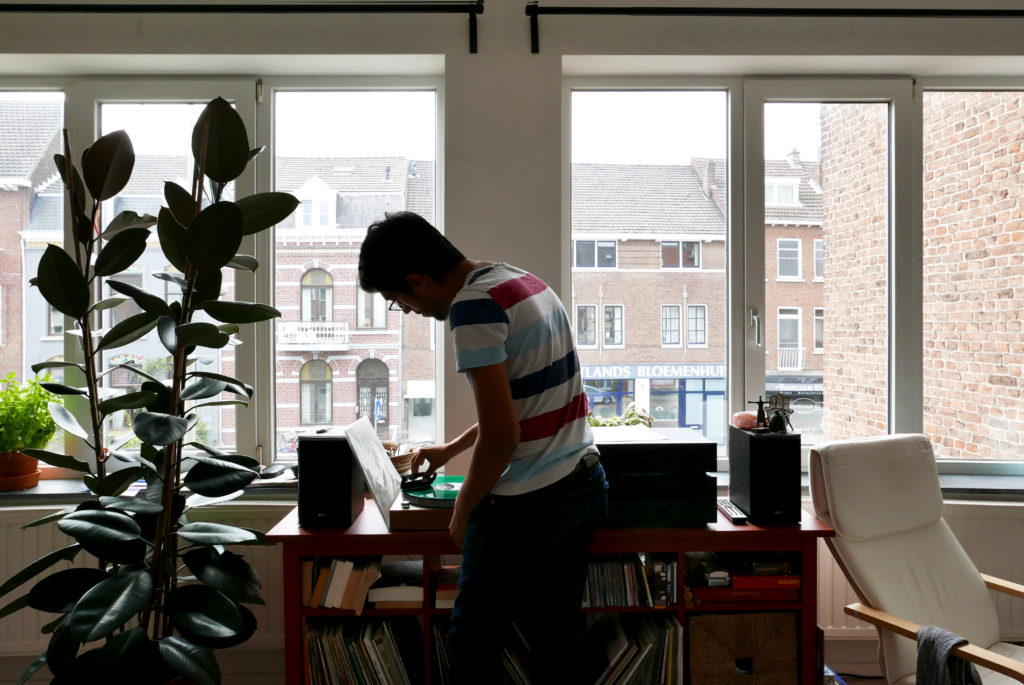
“People in general inspire me a lot. The chaos in humanity. How pain is human, how happiness is human. The tragedy, the rhythm of life, and that is life itself. That inspires me so much, the idea of happiness and pain in the same place. For me that is powerful because the human spectrum can be so complex and so simple at the same time.”
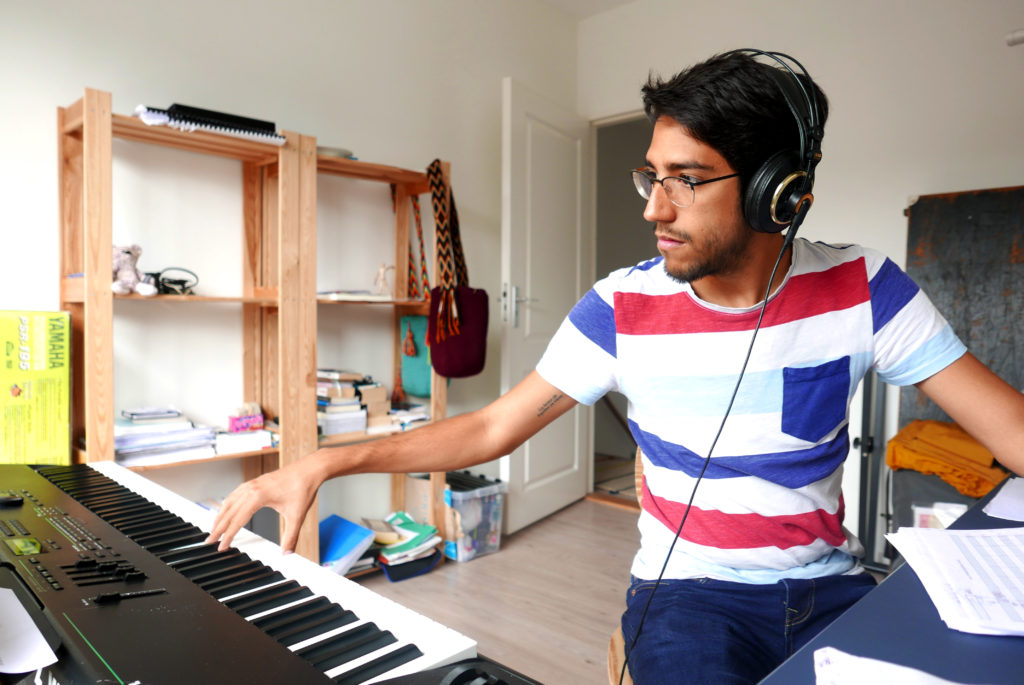
“For me composing and the process of composing is not only about writing notes on the paper. There’s a huge process that is happening way before form the moment you have an idea. The moment when you have the sound or the sound of your person in your head. You start to maybe even read a little bit. I write the idea down, then start studying the instruments, the technicalities and then think about the sound that I want to make. If it needs to strong or airy. Then I jot down the ideas or possible sketches. I do this all early in the morning.”
“The word “contemporary” is very difficult. The talk about contemporary music, or contemporary opera, is nowadays a very broad and open term, in terms of style, technique, ways of speaking, ways of using language. So many ways have been happening since the explosion of avantgarde. That explosion of possibilities resulted in us. When I compare contemporary to classical opera, i think it’s more about the way of expression. Opera has always evolved thematically in relationship to society. It is so versatile nowadays that you can find operas that are not about the story but about the sound, or about the intersection of acoustic and electronic music. You can also find operas about ordinary life, fairy tales, or technology. I just like to tell stories. In the end operas are a very good way to tell stories. A story that is represented and expressed by different arts.”
www.fhoyosgonzales.com
